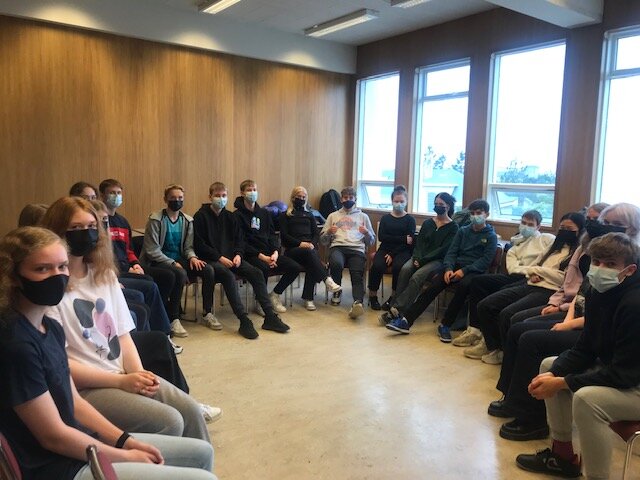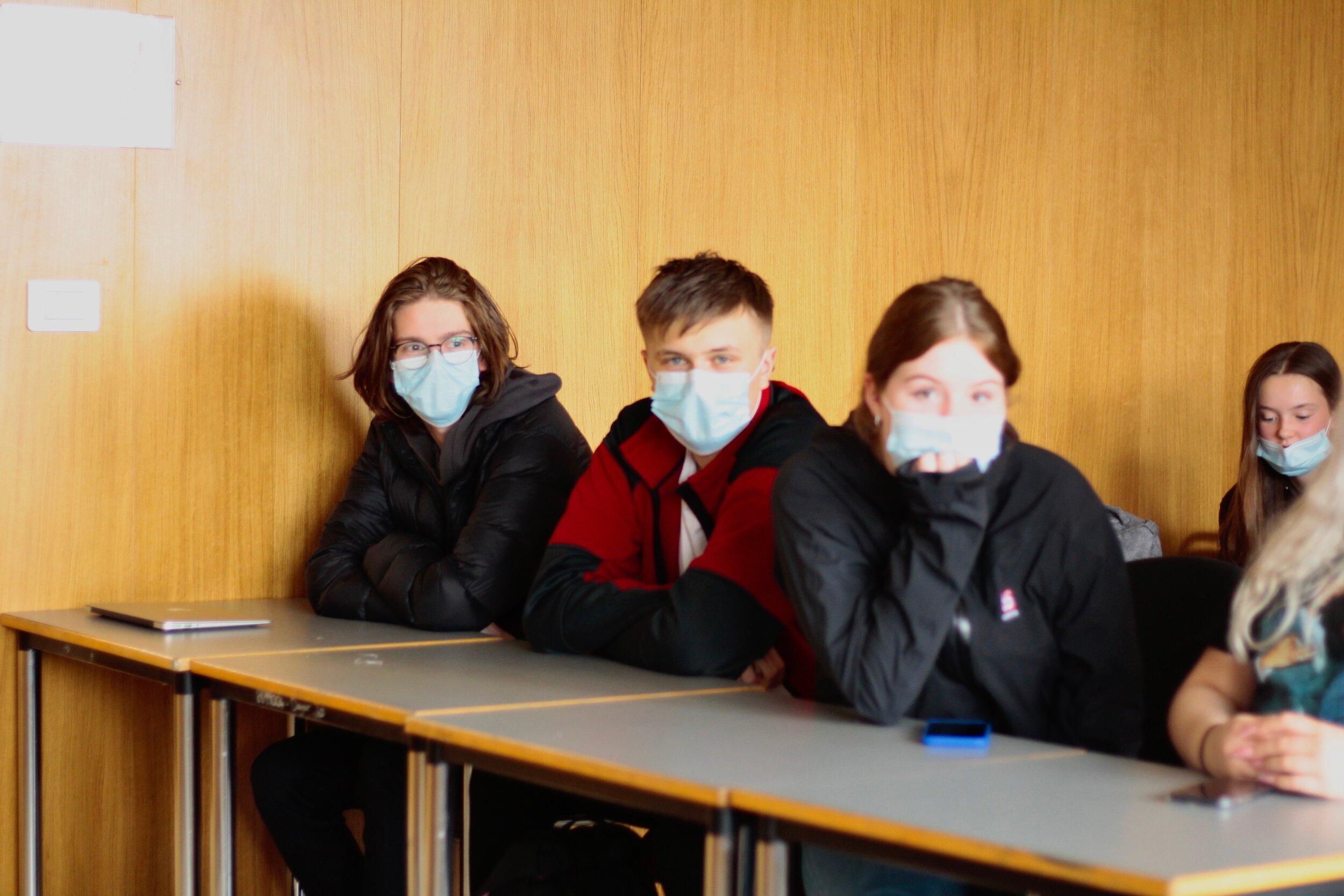Concerns of the Youth: Future University Students Discuss their Concerns and Expectations from the New Government
Photos: Mandana Emad and Mahdya Umar
As Iceland is preparing itself for the 2021 parliamentary elections there is a spotlight on politicians and political parties. Each political party is campaigning to inform the public about their manifesto and the possible future leaders of the country are appealing to the voters to pick their party on polling day. Thus, when the adults will flock to polling stations on 25th September to cast their votes, their choices will trickle down to affect the youth of Iceland who cannot yet vote. For that reason, I wanted to know what concerns the youth have and what issues they want to see tackled by the government. I had the pleasure to speak to some very perceptive, grounded and honest students at Kvennaskólinn. Below are some remarks made by the students about the main issues they feel need to be considered when a new parliament sets their goals for the next four years..
Salka: I think the government should have a clearer way of dealing with climate change because it is a really serious problem right now and I don’t feel like they are doing anything real about it. I feel like it is all words and they don’t have any long term plans. The longer they wait it will only get more serious and then we will be past the point of no return.
Bóas: The government should reel in spending a bit. Everyone likes lower taxes or just in general less government spending. Maybe some more privatisation efforts particularly in the health care sector. Many surgeries for example that probably should be privatised are funded and subsidised by the government.
Aldís: The government should make clearer laws around sexual harassment and sexual abuse. The system needs to be fixed for the victims. A few years ago a woman stole a sandwich from a grocery store and a few months later a man sexually assaulted a woman. The woman who stole the sandwich got a longer sentence than the man who sexually assaulted a woman. This angered me.
Guðný: We need to rebuild the system for victims of abuse and violence. There are too many loopholes in the laws regarding this right now. It is so difficult for the victims to prove what they are saying is right. This makes it impossible to get justice. The sentences are way too short and they need to be harsher.
Aldís: What I would like for the political parties to do is take a clear stand against sexual violence. Show the people that you [the politicians] are actually doing something and not just saying you will do something when the elections are happening. Follow through.
Hrafnhildur: We hear about women that have been sexually assaulted but very little is done to help them. Our youth need to be educated about equality and women’s rights through the educational system and not by the online world.
Aldís: [Menntaskólinn] used to be four years long and now it is three years. Iceland signed the UN pact called 'Convention on the Rights of the Child’ and the government is breaking our rights according to this pact by shortening our school. Our education of four years is now crammed into three years. They never moved down one year’s worth of studying into the tenth grade like they said they would. Our rights say that this is not ok but they [the government] don’t care.
Guðný: I lived in the Westfjords. Many of the roads there have not been fixed since they have been built. There are so many accidents in that region but the government never fixes the roads. They say because it is outside of the capital region it is not as important of an issue even though so many accidents occur there! The government does not want to think about anyone outside the capital area. (The teacher adds: “The government runs the company that is supposed to fix the roads and keep them fine so this is definitely a government problem”)
Ísak: Educate us more on how to know what to trust online, how to respond to anything that might pop up and other online threats.
Maríus: We use renewable energy but our global footprint is so big because we import so much.
Ísak: I would say to politicians to stop wasting money on things that don’t make sense, like the city of Reykjavik did, by spending a lot of money on importing straws for a café.
María: This idea that Iceland is perfect [for women] because we had the first ever female president and because we score high on equality does not actually mean we have equality. To look away when there is a problem is not right.
Sunna: We don’t learn about equality, we don’t learn about money or how to buy a house or how to start a business or how to get a job but I do know historical facts that are meaningless and I know how to order a hot dog in Denmark, but not how to buy a car.
The students had much more to say and it was a lively but serious discussion. They wanted to tackle ‘big’ issues as well as ‘smaller’ issues for the betterment of society as a whole. We all hope that the new government will be able to fulfil society's needs and bring about the changes that are desperately needed.





